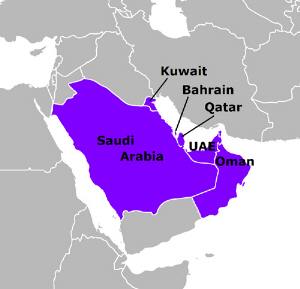Part Two: The Reasons Why the Western Empathy and Interest Are Wearing off
Nidal Hamadeh
Part Two: The Reasons Why the Western Empathy and Interest Are Wearing off
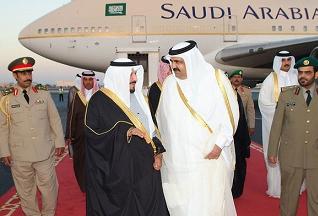 No sooner do you talk of Saudi Arabia in France than will the arguer think of Qatar. The echo of the invisible war between the two regimes has gone out of the ruling palaces and has reached the parlors of the Decision makers in the West. Although Saudi Arabia's officials have always underestimated Qatar and their Qatari peers before the West, the westerners have, simultaneously, always been following with interest everything released by Al-Jazeera Channel particularly that this channel has exclusively broadcast Osama Bin Laden statements, and it has placed Iraq as a priority in its coverage of the events supported by numerous work teams and gigantic capacities.
No sooner do you talk of Saudi Arabia in France than will the arguer think of Qatar. The echo of the invisible war between the two regimes has gone out of the ruling palaces and has reached the parlors of the Decision makers in the West. Although Saudi Arabia's officials have always underestimated Qatar and their Qatari peers before the West, the westerners have, simultaneously, always been following with interest everything released by Al-Jazeera Channel particularly that this channel has exclusively broadcast Osama Bin Laden statements, and it has placed Iraq as a priority in its coverage of the events supported by numerous work teams and gigantic capacities.
Thus, due to Al-Jazeera success, there has been an influence on the view of the West toward the Gulf Arab countries particularly toward Saudi Arabia which is not considered anymore the only weighty force in the order of the emirates and the Gulf Sheikdoms. Subsequently, the role of Qatar has started to surface because of Al-Jazeera needed by the West, particularly, the U.S.A. to dampen, on one hand, the occupation in Iraq, Afghanistan, Palestine and to gradually allow the incursions of the American political motives, on the other hand.
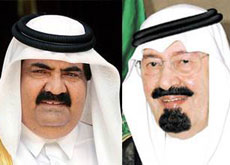 This has been what evoked the Saudi wrath against Qatar; as a result, the Saudi officials have never attenuated instigating their peers in the West against Qatar. Such an act occurred several times in a private conversation with President Jacques Chirac of France as mentioned in the book "Dans le Secret des President" or " The Secrets of Presidents" by the French writer and journalist Mr. Vincent Nouzille; also, as Richard Lapavier the author of " The Secret Story of 1559 Resolution." In this context, the instigation triggered by the Saudis has extended to the U.S.A. and Britain.
This has been what evoked the Saudi wrath against Qatar; as a result, the Saudi officials have never attenuated instigating their peers in the West against Qatar. Such an act occurred several times in a private conversation with President Jacques Chirac of France as mentioned in the book "Dans le Secret des President" or " The Secrets of Presidents" by the French writer and journalist Mr. Vincent Nouzille; also, as Richard Lapavier the author of " The Secret Story of 1559 Resolution." In this context, the instigation triggered by the Saudis has extended to the U.S.A. and Britain.
However, the western decision making circles, which have been working on making of Saudi Arabia a deterring force against Iran in the region after the Turks had refused negotiating the idea, have started to seriously consider and talk over the advantages of the Saudi model in the Arab region particularly after the Saudi military interference in Yemen which has shown the limitation of the Saudi military and political force in spite of the gigantic financial capacities.
In this context, Fatiha Dazi, Senior Analyst Arabian Peninsula, Doctor in Political Science, Middle East Desk, Delegation of Strategic Affairs, Political Department, Dr. Fatiha Dazi-Heni Ministry of Defence, Paris, and author of the book " The Kingdoms of the Gulf" wrote that Saudi Arabia is a very affluent country, nevertheless, abundant affluence alone can never produce a strategic and significant role for such countries.
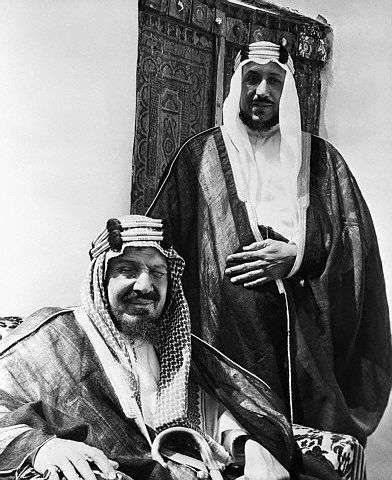 Such fallback in the importance of the Saudi ruling regime was not limited to what was mentioned earlier, yet it reached the point of the conviction of the elite political figures in the West that the Saudi royal family has been the origin of extremism and its nurturing in the Islamic regions, in addition to its being based on a non-viable model of governance for long.
Such fallback in the importance of the Saudi ruling regime was not limited to what was mentioned earlier, yet it reached the point of the conviction of the elite political figures in the West that the Saudi royal family has been the origin of extremism and its nurturing in the Islamic regions, in addition to its being based on a non-viable model of governance for long.
This has been indicated by French Secret Service Head Alan Chouet of the (DGSE) who in turn lashed out an offense against the Saud royal family and the ruling regime in the Saudi Arab Kingdom accusing them of patronizing violence and that THEY are the country of extremism and Islamic fanaticism, not Iran or Iraq.
He added at a conference held at the French Senate House and attended by several French, European, and American experts and titled "The Middle East during the Nuclear Time," one of whose lecturers was Mr. Khafier Solana, the previous General Secretary of NATO and the previous Commissioner of the European Diplomacy, along with several Arab and foreign diplomats in Paris, and in the presence of the ex-Secretary of State Mrs. Madeleine Albright: "This family has ruled since 1926 and has relied on the legitimacy of the sacred shrines and on escalating Islamic extremism and fanaticism in its governance after it had removed the Hashemites, the historically legal rulers and administrators for the sacred shrine affairs."
The truth is that this Saudi family is the foundation of violence in the Islamic regions because it has relied on its continuity in ruling on the logic of extremism and auctioneering over others in every Islamic issue; all of this has been done in the hope of subduing any internal protesting movement and encountering others externally such as Iran or Iraq during Saddam Hussein's regime.
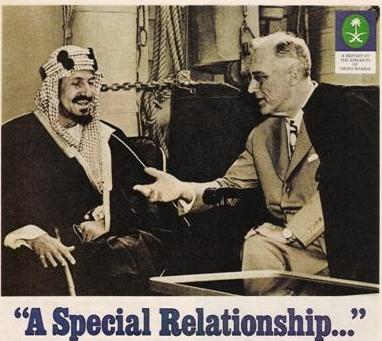 In the light of lacking the human resources and because of the absence of an industrial infrastructure in Saudi Arabia, the Saudi family has relied in its political administration on paying funds, by funding societies and groups holding violent and extremist beliefs all over the world.
In the light of lacking the human resources and because of the absence of an industrial infrastructure in Saudi Arabia, the Saudi family has relied in its political administration on paying funds, by funding societies and groups holding violent and extremist beliefs all over the world.
However, the real reason for stability in Saudi Arabia and for the stable Saudi family regime originates from the agreement made in 1945 between the King( Abdel A'ziz Al Saud) and the American president (Franklin Roosevelt), which stated American protection for the Saudi regime in exchange of a guarantee by the ruling family to keep the oil flowing to America." Here Choeut words end.
Now and after the Arab revolutions encompassing the Arab region, there is a geo-political redesign for the map both regionally and internationally according to the French Minister of Foreign Affairs Mr. Alain Juppé. The features of this aggressive map, as seen by the elite in the West, does not fit with the continuity of the regime in Saudi Arabia in its present form, because the Arab changes due would make the western countries' support for this regime a heavy burden on them, which subsequently would mean more hostility against the Arab nations, which in turn never fear their regimes anymore.
"Undoubtedly, the changes are going to extend to Saudi Arabia," a French academic expert in the Arab affairs says adding, " The new concepts and the current variables must collide on with the Saudi hard regime and they will topple it."
In Part III: When the Files of Human Rights and Corruption are Opened up.
See also, Saudi Arabia under the West’s Microscope - Part I
